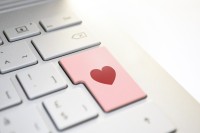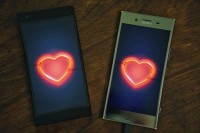-

- Admin
- August 25, 2024
- 0 Comments
Technology has significantly altered the dynamics of dating for reasons that remain somewhat unclear. The adoption of tech innovations has changed how we interact with others, and dating is no exception. With the omnipresence of smartphones and other digital devices, we experience constant connectivity, which can be both beneficial and problematic.
**The Dating Scene:**
How did your parents meet? Mine were introduced at a double-date setup, where they were observed closely by two sets of families—metaphorically speaking, like amoebas under a microscope. With the rise of social media, the idea of going on a traditional blind date seems almost archaic. Today, we have instant access to information about almost everyone, and the process of meeting potential partners is continuously evolving.
**Choices:**
The advent of dating apps has led to a surge in people willing to go on dates who might not have otherwise. These apps make it easier to filter potential matches based on your preferences, which many find appealing. Take Tinder, for example. This app allows you to find singles in your area who might interest you, whether for a casual outing or a more intimate meeting. You can make decisions based on specific criteria, and if someone piques your interest, you can easily reach out to them. This simplicity is a testament to how technology has facilitated decision-making. Dr. Letamendi notes in Time magazine, "With the ability to interact with hundreds, if not thousands, of people simultaneously, we’ve enhanced the impact others have on our self-esteem."
**The Dating Phenomenon:**
Research indicates that this new technological approach to dating creates a rush that elevates dopamine levels in the body. Dopamine is associated with addiction and generates a sense of euphoria whenever we engage in something we enjoy. Experts observing dating app users have noted a significant increase in dopamine levels, which might contribute to the frequent use of these apps.
**Convenience:**
While dating apps might appear glamorous on the surface, there are numerous incidents where users have faced significant risks. As Franklin Bradley, CEO and Founder of TryCupid.com, points out, "Many of us believe that the process of selecting a partner should be done in person… but for others, it’s about saving time and money. In that case, the Internet is a clear winner. Until someone reminds you of the old saying: you get what you pay for."
**Conclusion:**
It seems that online dating has given the concept of dating and romance a somewhat impersonal veneer. As Carole Lieberman describes in her book *Bad Boys*, "Dating has shifted from a ‘romantic serendipity’ to a ‘virtual shopping spree’." So, what’s the net result of all this? It is hard to say as no one is equipped with a crystal ball to determine the future of online dating and technology advancements.
.



Post A Comment